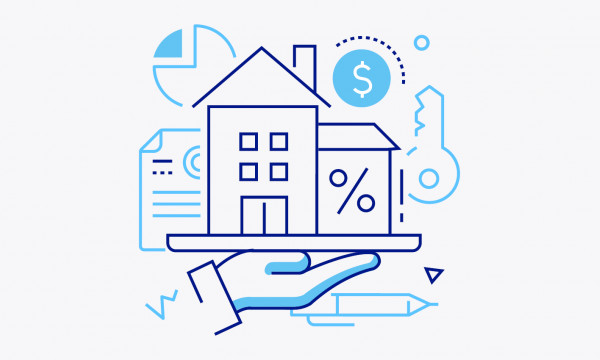Why should I get prequalified?

Picture this: You’ve been on the house hunt for a while and finally found your dream home. You’re finally ready to make an offer. Hold up — have you been prequalified for a mortgage yet?
At UBT, we use prequalification as the very first step in the home-buying journey — a process where one of our helpful, caring loan officers assesses your financial situation to determine what programs you qualify for, what type of loan is best for you, and your buying power. Plus, you’ll have a built-in expert to touch base with on interest rate changes and how they affect your payment.
So why is prequalification so important? Let’s break it down.
Buying power matters
Prequalification gives you a clear understanding of your buying power. By knowing how much you can afford, you can focus your search on homes within your price range. This saves you time and prevents disappointment from falling in love with a home that you wouldn’t be qualified to purchase.
Secondly, prequalifying locally with your UBT loan officer strengthens your negotiating power. UBT has a reputation for thorough reviews during the prequalification process. When you make an offer on a house, sellers want to know that you’re a serious buyer. By presenting a prequalification letter, you demonstrate that you have the financial means to follow through with the purchase. This can give you an edge over other potential buyers and increase your chances of securing your dream home.
Additionally, prequalification helps you identify any potential roadblocks early on. During the process, your loan officer discusses your credit score, income, assets, and debt-to-income ratio. If there are any issues or discrepancies, you’ll be made aware of them. This gives you an opportunity to address and resolve any financial concerns before they become major obstacles in the mortgage approval process.
How it works
Now, let’s talk about the process itself. Prequalification is relatively painless and can even be done over the phone. Before your prequalification chat, you’ll want to gather basic income information such as paystubs, bank account balances, and information on any assets or debts. Your friendly and helpful UBT loan officer will then review this information to estimate how much you can potentially borrow.
What prequalification isn’t
Equally as important as what prequalification is, is what prequalification isn’t. Here are some things you don’t need to stress about with prequalification.
- It’s not a contract. You and your UBT loan officer are simply determining your buying power. We’re confident you’ll love having this friendly local expert in your corner throughout the buying process!
- It’s not expensive. In fact, it’s free! Your loan officer won’t charge you anything to assess your house-hunting budget. They want to provide you with a fair budget and then give you tools to succeed in negotiations.
- It’s not an edict to buy. You don’t have to buy a house! If the timing isn’t right, you can wait until it is. If you simply don’t find the right house, you can just choose to stay put right where you are.
- It’s not high-pressure. Your loan officer will review your financials and give you the tools needed to succeed in the buying process. They’re there to help you — not sell you something!
Let’s work together
Prequalification is a vital step in the mortgage process. It helps you understand your budget, strengthens your negotiating power, identifies potential roadblocks, and saves you from wasted effort. So, before you embark on your homebuying journey, reach out to a UBT loan officer to get prequalified. It’s a small step that can make a big difference in turning your homeownership dreams into a reality!
Loan products subject to credit approval.
Learning Center articles, guides, blogs, podcasts, and videos are for informational purposes only and are not an advertisement for a product or service. The accuracy and completeness is not guaranteed and does not constitute legal or tax advice. Please consult with your own tax, legal, and financial advisors.





